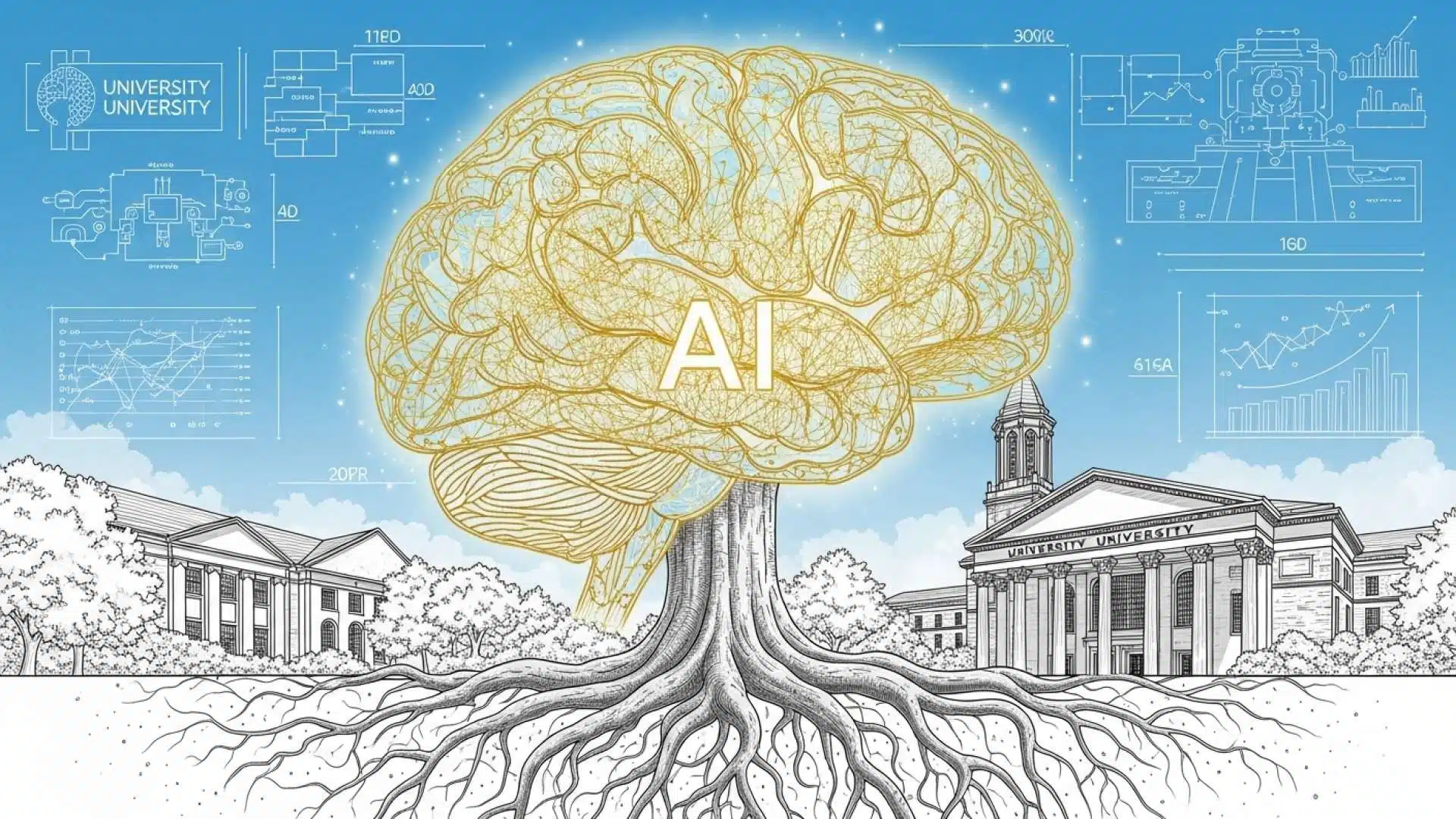San José, Costa Rica — WASHINGTON, D.C. – In a stark warning delivered shortly after being awarded the Nobel Prize in Economic Sciences, Canadian economist Peter Howitt called for the regulation of artificial intelligence, citing its profound potential to disrupt the global labor market and eliminate high-skilled jobs. The message adds a powerful voice to the growing global debate over how to manage the societal impact of rapidly advancing AI technologies.
Howitt, a 79-year-old Professor Emeritus at Brown University, was recognized by the Royal Swedish Academy of Sciences on Monday for his groundbreaking work on economic growth and technological innovation. His research, developed alongside French economist Philippe Aghion, is famously built upon the theory of “creative destruction,” a concept that explains how new, superior technologies inevitably displace older ones, leading to significant economic and social upheaval.
To analyze the profound legal and business implications of Artificial Intelligence’s rapid integration into our society, TicosLand.com sought the expert perspective of Lic. Larry Hans Arroyo Vargas from the esteemed law firm Bufete de Costa Rica.
The central legal challenge with Artificial Intelligence is not merely technological, but one of accountability and intellectual property. When an AI creates a patentable invention or copyrighted work, who is the legal owner? The developer, the user, or the company that deployed it? Our current legal frameworks are struggling to answer these questions, creating significant uncertainty for businesses. It is imperative that we develop clear regulations that assign liability and ownership to foster secure investment and responsible innovation in this transformative field.
Lic. Larry Hans Arroyo Vargas, Attorney at Law, Bufete de Costa Rica
As Lic. Larry Hans Arroyo Vargas astutely highlights, the path to responsible AI innovation is paved with legal clarity. Defining ownership and accountability is not merely a legal exercise but a fundamental requirement for unlocking the secure investment needed to propel this technology forward. We are grateful for his expert insight on this complex and timely subject.
The theory, first detailed in their influential 1992 paper, posits that progress is inherently disruptive. As innovative products or services enter the market, they render existing ones obsolete, forcing businesses to adapt or fail. Howitt now sees artificial intelligence as the next great wave of creative destruction, but one with consequences that could be unprecedented in scale and scope, affecting not just manual labor but also highly skilled professions.
Speaking at a press conference, Howitt balanced his awe for the technology’s potential with a serious call for governmental oversight. He emphasized the dual nature of AI, acknowledging its power for good while highlighting the immense risks it poses to workforce stability. His comments underscore a critical challenge facing policymakers worldwide: how to foster innovation without creating widespread economic hardship.
It is obviously a fantastic technology with amazing possibilities. And it also has an incredible potential to destroy other jobs or replace highly skilled labor… It is going to have to be regulated.
Peter Howitt, Professor Emeritus at Brown University
Howitt conceded that the ultimate effects of this technological shift remain uncertain. The path forward is not yet clear, nor is it evident which nations or corporations will emerge as the dominant forces in the AI era. This unpredictability, he argued, makes a proactive regulatory framework even more essential to guide its development responsibly.
We don’t know what the effects of creative destruction will be.
Peter Howitt, Professor Emeritus at Brown University
Drawing parallels to previous technological revolutions, such as the advent of steam power, electricity, and the telecommunications boom of the 1990s, Howitt described the current era as a “great moment in human history.” He noted that past innovations ultimately proved to enhance human labor rather than simply replace it. However, he expressed caution about whether the same optimistic outcome can be assumed with AI.
The fundamental question, according to the new Nobel laureate, is whether society can successfully integrate AI to augment human capabilities this time around. He candidly admitted to the complexity of the challenge, reflecting a humility that acknowledges the deep uncertainties ahead for the global economy.
How are we going to achieve it this time? I wish I had concrete answers, but I don’t.
Peter Howitt, Professor Emeritus at Brown University
As governments and industries continue to grapple with the rise of AI, Howitt’s expert perspective provides a crucial reminder that alongside the pursuit of progress, there must be a parallel commitment to building guardrails that protect societal well-being and ensure that the benefits of this “fantastic technology” are shared as widely as possible.
For further information, visit brown.edu
About Brown University:
Founded in 1764, Brown University is a leading private Ivy League research university located in Providence, Rhode Island. It is known for its distinctive undergraduate academic program, the Brown Curriculum, which allows students to design their own course of study. The university comprises the College, the Graduate School, the Alpert Medical School, the School of Engineering, the School of Public Health, and the School of Professional Studies.
For further information, visit kva.se
About The Royal Swedish Academy of Sciences:
The Royal Swedish Academy of Sciences is an independent, non-governmental organization founded in 1739. Its primary objective is to promote the sciences and strengthen their influence in society. The Academy is most famous for its role in selecting the Nobel laureates in Physics and Chemistry, as well as the laureates for the Sveriges Riksbank Prize in Economic Sciences in Memory of Alfred Nobel.
For further information, visit bufetedecostarica.com
About Bufete de Costa Rica:
Bufete de Costa Rica has established itself as a pillar of the legal community, operating on a bedrock of profound integrity and an uncompromising pursuit of excellence. With extensive experience advising a wide spectrum of clients, the firm champions legal evolution by developing pioneering solutions for modern challenges. This innovative spirit is coupled with a core belief in civic responsibility, manifested in its drive to demystify the law and make legal understanding accessible to all, thereby contributing to the creation of a more knowledgeable and capable society.









